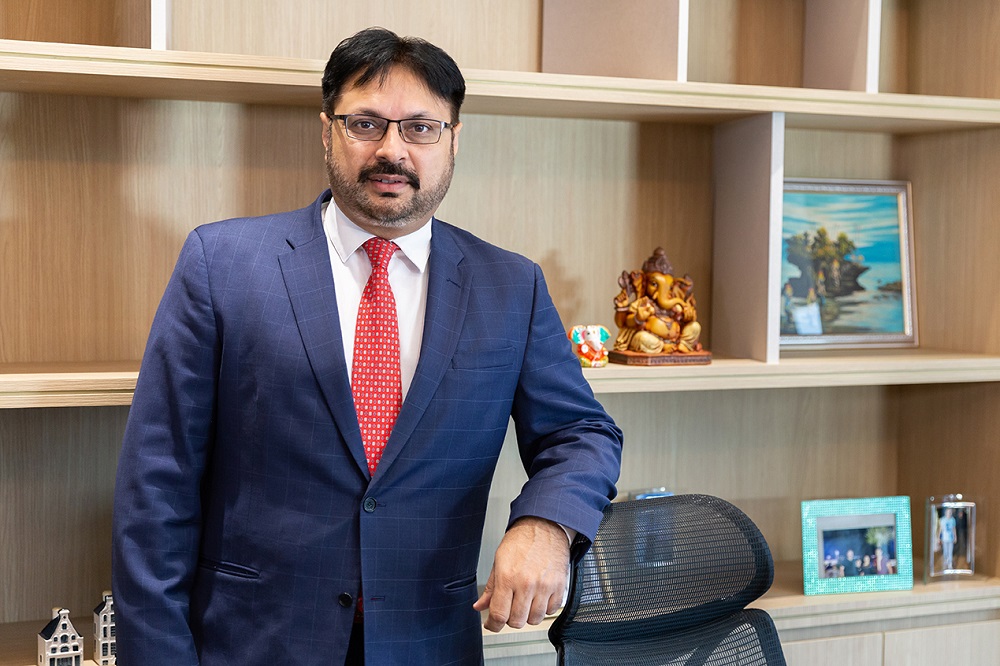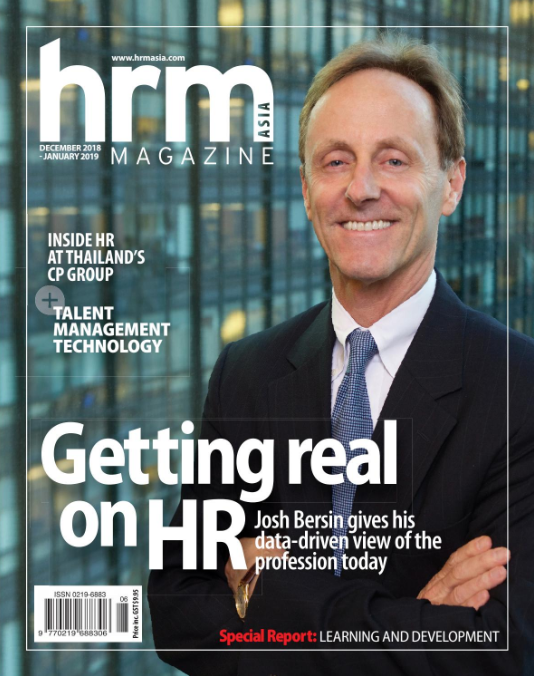How CP Group is developing the leaders of tomorrow
Check out Part One of our exclusive HR Insider story with CP Group, right here: How Thai conglomerate CP Group is going global

Keeping the leadership pipeline robust is a high business priority at CP Group, as evidenced by its CP Leadership Institute. This is a fully-operational physical campus, appointed with seven-star accommodation and common areas for dining and networking. Located in the “middle of the forest, just beside a hill”, it looks like a colonial mansion from Siam of yore.
“Through the leadership programmes we have in place, the Leadership Institute is a conduit for passing on knowledge from the most experienced among us, straight to the lowest levels, without any bureaucracy or mistranslations,” explains Singh.
One such initiative, the Future Leaders Programme, targets high-potential talent in the entry-level demographic. Every six months, CP Group brings 300 recently graduated hires together at the campus for a rigorous curriculum of action learning.
“They go through a structured syllabus of solving real-life problems faced by our various businesses, under the guidance of coaches who’ve been involved in the business for many years,” says Singh.
| “Through the leadership programmes we have in place, the Leadership Institute is a conduit for passing on knowledge from the most experienced among us, straight to the lowest levels, without any bureaucracy or mistranslations |
Each fortnight, these future leaders are given feedback by the three most senior executives in CP Group: the senior chairman, chairman, and Group CEO.
“It’s not just feedback about their ideas and solutions, but also individual feedback on each of them as professionals and leaders of the future,” Singh points out.
“This programme goes on for six months, and it’s demonstrative of how learning and development can go hand in hand with corporate growth. Because the problems they solve are real, and the solutions make a real impact.”
Another programme hosted at the CP Leadership Institute involves the “middle level” of leadership.
“While the future leaders programme focuses on finding new business opportunities, this programme is about transforming the existing business – to digitise and find new ways of serving our customers and society,” says Singh.
This scheme is cross-functional and cross-business. And just as with the future leadership initiative, participants work to solve actual business problems, even as they get real-time feedback and support.
Singh is quick to highlight that the support isn’t just in terms of advice, but also financial resources. The entire leadership team is there, watching and listening as participants work through their problems and solutions.
It also means that solutions have a strong chance of actually being implemented, instead of being caught up in hierarchy.
“Our senior chairman’s vision for this programme was to be able to get an oversight of what is happening across this S$73 billion dollar group. At the same time, having the entire leadership team there means that potential roadblocks can be cleared out in one go,” says Singh.
Preparing for Industry 4.0
The focus on leadership development is just one articulation of CP Group’s intent to equip its 300,000-plus workforce for Industry 4.0.
“On a day-to-day basis, we want our people to be ready to experiment, to not be afraid of failing, and to take on the responsibility of sharing their takeaways from these experiences. In turn, we want to nudge our managers to be empowering, rather than controlling.”

This story first appeared in the December-January issue of HRM Magazine Asia. Read it here.
One way CP Group has manifested this approach is through a sophisticated internal communication system unique to the conglomerate. “CP Connect”, which has already on-boarded 150,000 staff, is a mobile platform with multiple applications. One of these is for people to share their ideas, and talk about their failures with the wider organisation.
“This also opens them up to networking opportunities, because someone can say, ‘Oh, I’m doing that same project in the UK, this is how we’re doing it’; and someone else could be, ‘We’re doing the same thing in China, let’s connect,’” says Singh.
“You can have group chats, or individual chats. For instance in HR, we’ve got groups for talent acquisition, learning and development, and so on,” he adds.
The app provides a secure, business-focused alternative to chat services like WhatsApp and LINE, but it’s more than just a chat system. It also tracks each employee’s performance in terms of contributing and sharing.
“There are a also few other applications on there now, around feedback and giving appreciation. We’ve implemented a points system which can be used on some of our products, and we’re looking to integrate more of our businesses to that. The aim is that soon, people can use their points at, say, their local 7-Eleven,” says Singh.
CP Connect boasts a sleek interface that looks like it can very well keep up with any other consumer-facing mobile apps – probably because it was specifically created as a mobile platform.
“We’re not lifting systems from laptops and retroactively trying to convert them from mobile,” says Singh, adding that it was important for CP Connect to be a mobile application, specifically. After all, “most of our employees are not sat in front of computers.”
Still, the organisation has had to work hard these last three years, to actually get people to use the app in same the way they might use WhatsApp or LINE.
“Our leadership took the lead in helping to shape behaviours,” notes Singh.
Next year, CP Group is looking to take the app to the next level; making it the face of employer-employee experience, and having it collect data from the moment an employee checks in: “everything from their performance, to compensation, to learning and development.”
“But even as we do that, we’ll be looking to entrench the concept of artificial intelligence in HR. Which means forming new processes, identifying gaps, and ensuring we also have the capabilities to analyse all the new data we’ll be collecting,” he says.
HR Insider shines a spotlight on the “people behind the people” – namely, the talent teams supporting the region’s most successful organisations. Check out previous HR Insider stories here.



